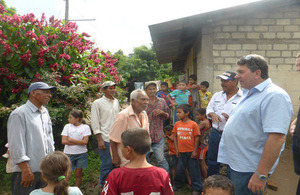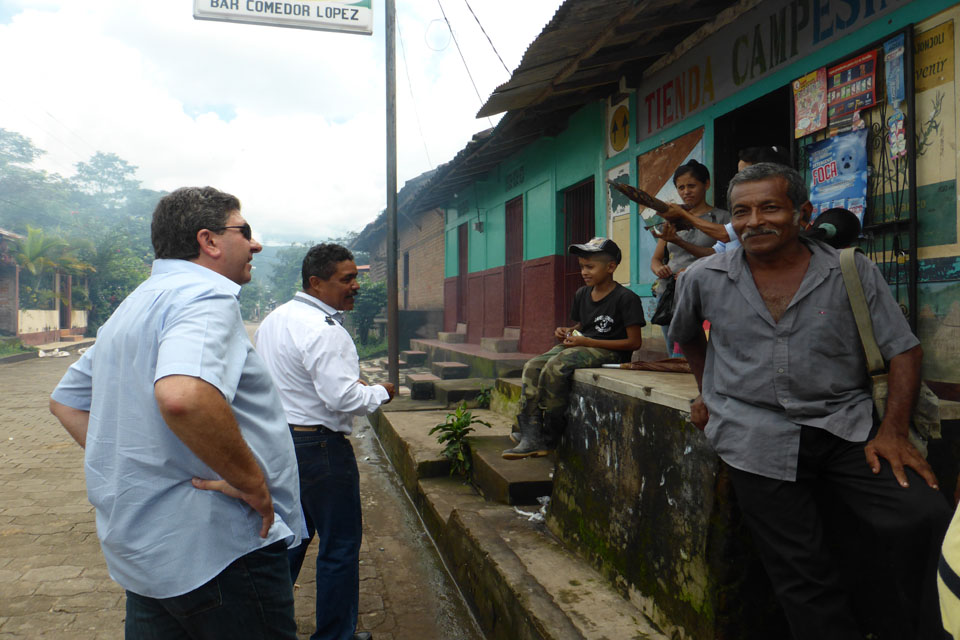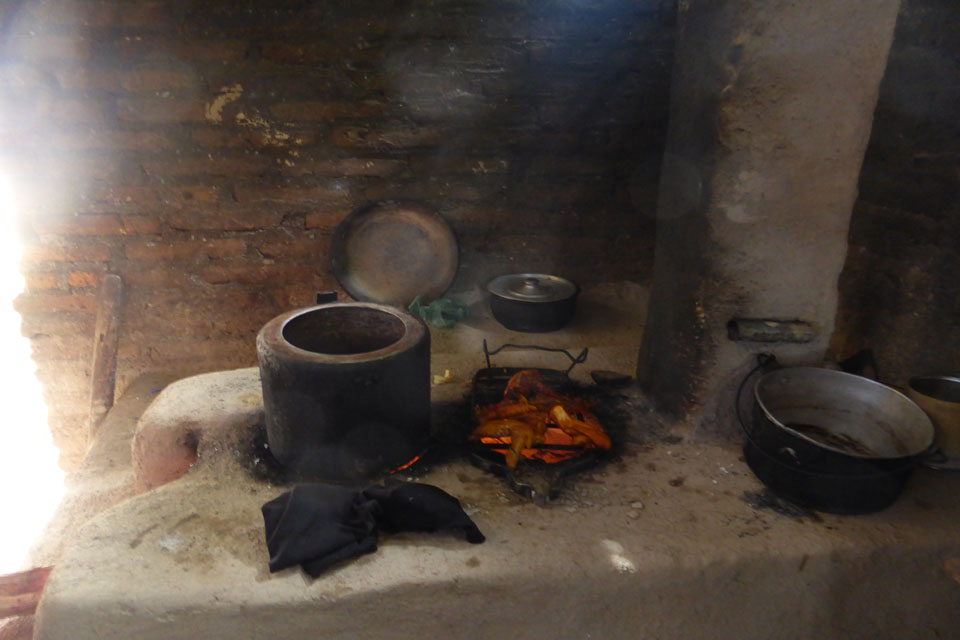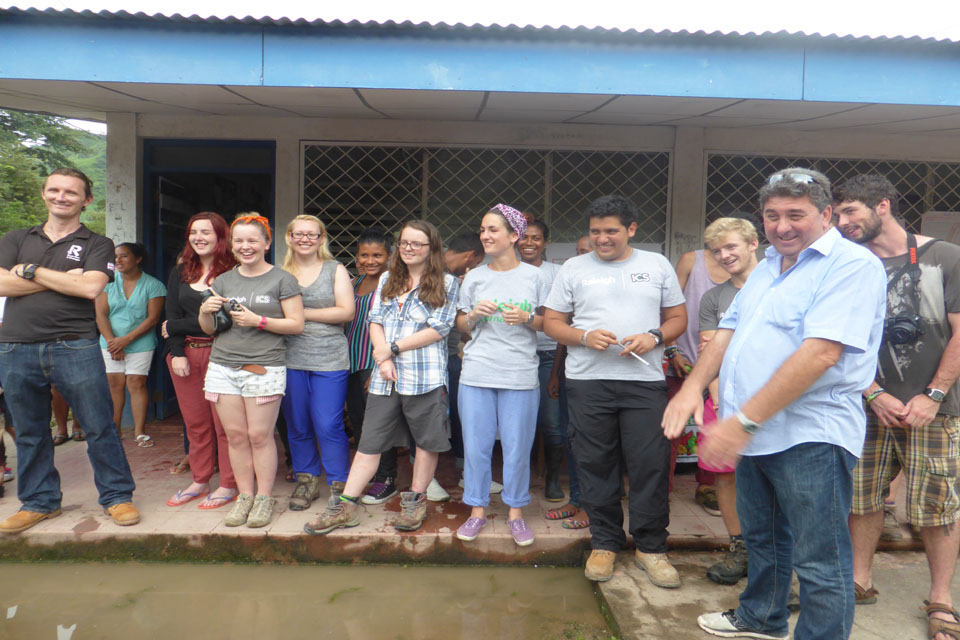British Ambassador to Nicaragua visits rural communities
Ambassador Chris Campbell tours UK-financed projects in Achuapa

Ambassador Campbell receives a warm welcome in Los Hornos
On Friday 18 October, 2013, Ambassador Chris Campbell and Director of Communications, Denise Lewis Martínez, visited two communities in Achuapa, Nicaragua, to learn first-hand about some of the projects carried out there by Raleigh International under its International Citizen Service (ICS) programme.
International Citizen Service is a UK government funded development programme that brings young people together to make a difference in some of the most challenged communities in the world. Achuapa, located in a mountainous area to the north west of Nicaragua, is one of the poorest districts in the country. Locals earn their living from growing basic grains; a non-traditional crop, sesame; and rearing livestock.

Ambassador Campbell chats with community members outside the local general store
Empowering farmers
Chris’ first stop was at the Juan Francisco Paz Silva Cooperative in Achuapa. The Cooperative supports farmers in their production of sesame seed, coffee, cattle and Rosa de Jamaica, a type of hibiscus flower used to make jams, fruit drinks and even wine. The Cooperative also provides support in areas such as human and animal health, financial and agricultural advice, and has even established a special financing programme for female entrepreneurs. “The role of the cooperative in small communities is indispensable for their growth,” said Ambassador Campbell, “By providing special financing for women, they empower them, increasing their chances of success as entrepreneurs, which in turn contributes to the community’s well-being.”

The indoor stoves built by Raleigh volunteers cut down on indoor smoke levels and improve health
Sustainable solutions
In the community of Los Hornos, Raleigh ICS volunteers had just completed a natural resource management project, in which they partnered with local youth groups to work on reforestation projects, find solutions to the community’s waste management issues and provide alternatives to cooking on open wood fires.
Community members were eager to express their satisfaction with the tangible changes in their homes and wider surroundings, with one youth leader stating that, “Before the Raleigh brigade was here, I did not think too much about keeping my community clean. Now I take pride in making sure there is no litter in the streets and I feel like I am making a difference to the planet.”

Chris Campbell (right) with Ross McKenzie, Raleigh Country Programmes Manager (left) and Raleigh volunteers
Community Health
In Las Tablas, Chris met with community members and Raleigh ICS volunteers at a gathering organised to show what had been accomplished in the three weeks since the current group of Raleigh youth workers had arrived.
As part of the assigned community health programme, the team had started looking into the availability of fresh water and sanitation in Las Tablas. As a result, they had already built a model gravity-feed water system that could be used to direct filtered water to irrigate kitchen gardens. The following week, the group would be starting construction of eco-latrines for families in need in the community.
Chris and Denise had the opportunity to overnight in Las Tablas and were amazed to observe how quickly the ICS group, known as “Charlie 2”, had become a part of the community, referring to their host families as Mum, Dad and siblings.
In summing up his visit, Chris remarked, “It has been an amazing experience to see the bonds that have formed between the British volunteers, their Nicaraguan counterparts and the host community. The people in Las Tablas are fully committed to working with the ICS group to make improvements in their hometown and the programme has already brought tangible enhancements in terms of water-saving techniques and increasing home-garden outputs, both of which have an economic impact on these families.”